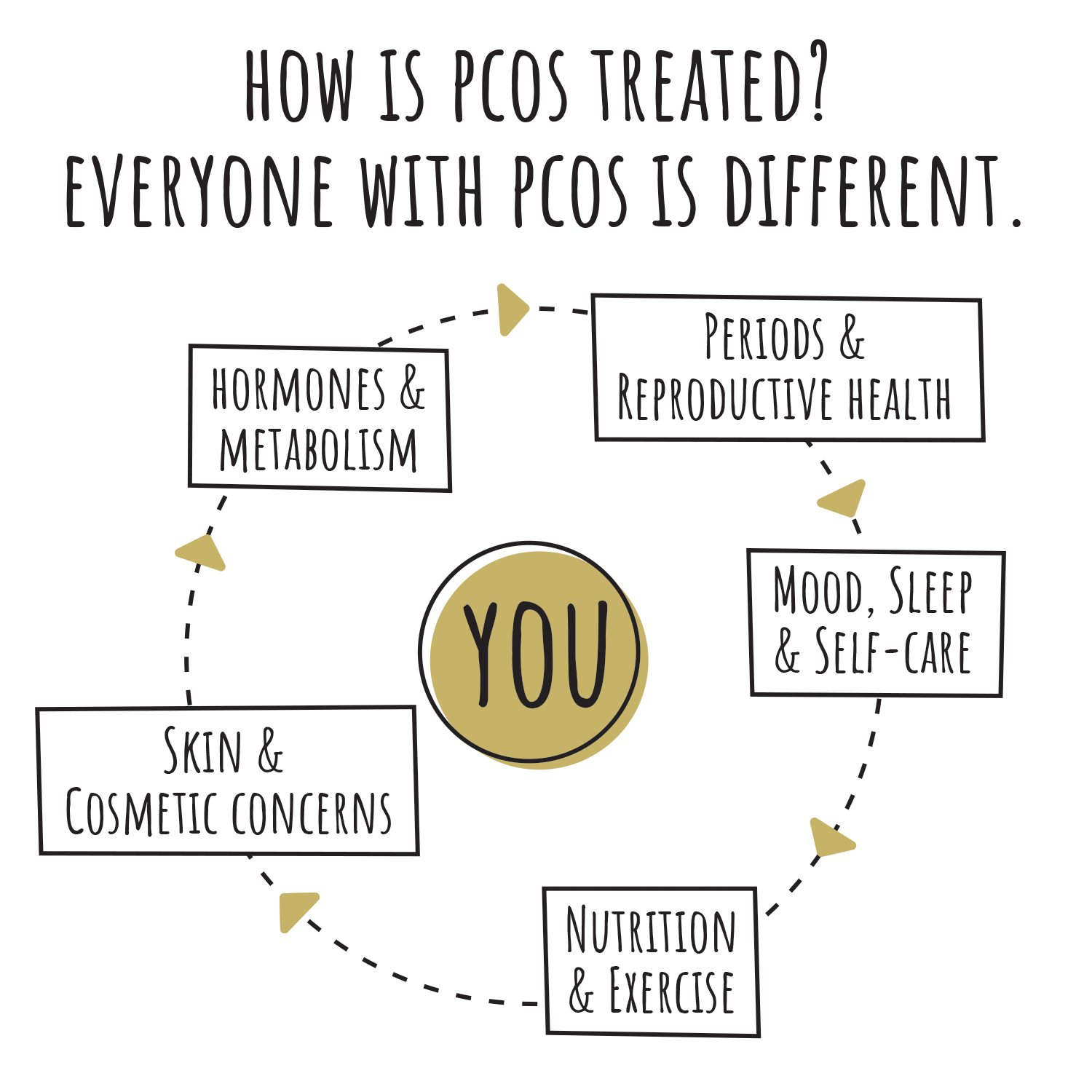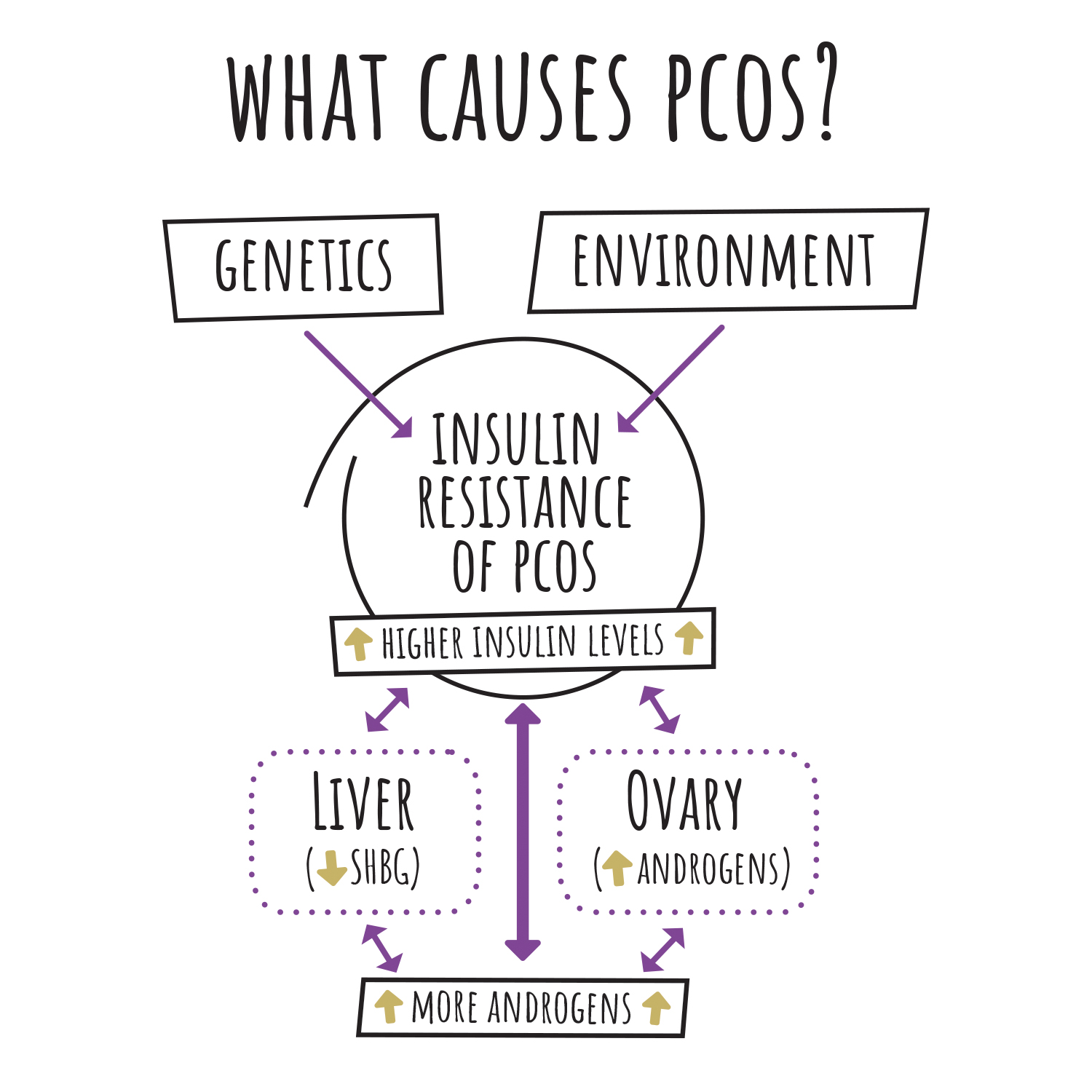Polycystic Ovary Syndrome (PCOS)
PCOS, or Polycystic Ovary Syndrome, is a common condition for teens and young people. Depending on how PCOS is diagnosed, nearly 1 in 10 people with ovaries have PCOS.
What is PCOS?
PCOS is a complex condition to diagnose and explain because it affects everyone differently. To have the diagnosis of PCOS as a teen, there needs to be the following findings:
- Irregular periods due to irregular ovulation: This can mean skipped periods, no periods at all, or periods that come more often than every 3 weeks.
AND - Hyperandrogenism: This means that a person has acne or hirsutism (extra hair on their face and body). If they do not have these concerns, PCOS can also be diagnosed because the level of androgen (usually the hormone testosterone) on a blood test is elevated.
Sometimes the diagnosis of PCOS cannot be confirmed because the blood tests for PCOS are not perfect. When PCOS is suspected but the diagnosis is not certain, someone is considered “at-risk for PCOS.” The diagnosis of PCOS requires that blood tests be done to see if there are other causes of irregular periods and hyperandrogenism. PCOS is diagnosed when the blood work is normal or shows a small to moderate increase in testosterone or other androgen hormones.
What causes PCOS?
The causes of PCOS are complex and new research is being done every day to understand more. Doctors know that people with PCOS must have genetic, or inherited, factors that cause the body to be less sensitive to insulin, and this is called insulin resistance. There are also genetic factors that cause the ovaries to be more sensitive to insulin and make more of the hormone testosterone. There are other interactions with hormones that cause higher levels of insulin and androgens, and this can affect the entire body. Once someone is found to have PCOS, they should be tested for pre-diabetes, fatty liver disease, and high cholesterol. PCOS can also be associated with mood issues like depression and anxiety, and sleep problems. Weight gain may also be a concern.
Does PCOS mean I have cysts on my ovaries?
No. PCOS was named over 100 years ago and does not accurately describe the condition. A “cystic-appearance” of the ovary can happen when someone does not ovulate regularly, but an “ovarian cyst” is a growth or collection of fluid that is treated very differently, and usually goes away on its own. People with PCOS can have ovarian cysts but these are due to different causes.
Cystic-appearing ovaries can be normal for teens and should not be used to diagnose PCOS until someone has had their period for at least 8 years. People can have PCOS and not have cystic-appearing ovaries.
How is PCOS treated?

Everyone with PCOS is different. The best approach is putting you at the center, and then deciding what’s next. There are many different types of health providers who help with PCOS concerns, including endocrinology, gynecology, dermatology, adolescent medicine, psychology, lifestyle medicine, registered dieticians, and your primary care provider.
Options for managing periods with PCOS
When someone has PCOS, the ovaries do not release an egg (ovulate) each month. Without regular ovulation, there may be no periods, skipped periods, irregular periods, or very heavy and long bleeding. There are treatments options that can help with symptoms and to keep your uterus healthy.
Will PCOS stop me from having children in the future?
No. People with PCOS can have children. Sometimes people with PCOS need medical treatments to help them ovulate so they can become pregnant.
